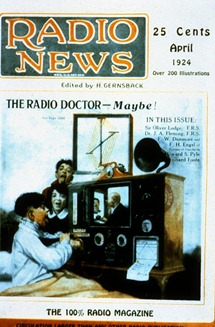 MedPage Today: “Robotic prostatectomy has spread all over the U.S., despite the fact that we don’t have clinical trial data to show that it’s better than traditional open surgery.Â
MedPage Today: “Robotic prostatectomy has spread all over the U.S., despite the fact that we don’t have clinical trial data to show that it’s better than traditional open surgery.Â
The company marketing the robotic surgery systems boasts on its website about news coverage from ABC’s “Good Morning America” and from CNN’s Dr. Sanjay Gupta. And, under a picture of a couple dancing, the manufacturer claims:
“Studies show patients who undergo a da Vinci Prostatectomy may experience a faster return of urinary continence following surgery … Several studies also show that patients who are potent prior to surgery have experienced a high level of recovery of sexual function (defined as an erection for intercourse) within a year following da Vinci Surgery.â€
But a paper published by the Journal of Clinical Oncology concludes that:
Risks of problems with continence and sexual function are high after both (robotic and open prostatectomy). Medicare-age men should not expect fewer adverse effects following robotic prostatectomy.â€
The article gives examples of complications following open (“normalâ€) surgery versus robotic surgery using Medicare claims data from 406 men that had robotic surgery and 220 that had open surgery. The data from the two groups looks surprisingly similar. In fact, the open surgery group had a larger percentage of respondents reporting no complications than did the robotic surgery group; although the difference may not be significant.
Ultimately the authors of the Journal of Clinical Oncology suggest that the reason for the popularity of robotic surgery may be “gizmo idolatry†is at play. The authors go one step further by calling out Medicare’s reimbursement for robotic prostatectomy, “The apparent lack of better outcomes associated with (robotic prostatectomy) also calls into question whether Medicare should pay more for this procedure until prospective large-scale outcome studies from the typical sites performing these procedures demonstrate better results in terms of side effects and cancer control.â€
It makes one wonder where the line for reimbursement should be drawn. Should reimbursement be tied to evidence based outcomes? It’s a good question when you think about all the treatments we use everyday that may not have sufficient data to back them up. Does that mean we should only use evidence based treatment? No, that would limit our ability to try new therapies when others fail. Interesting debate nonetheless.

 I had an interesting conversation with a colleague earlier today. We were talking about a feature set for a new product that we have due out later this year. Some of the language being used to describe a certain feature, and how it would be used, was causing quite a bit of confusion for me. So I tried to clarify things a bit. After a brief email exchange it turned out that I knew exactly what he was talking about; healthcare and especially pharmacy simply use different words to describe the process.
I had an interesting conversation with a colleague earlier today. We were talking about a feature set for a new product that we have due out later this year. Some of the language being used to describe a certain feature, and how it would be used, was causing quite a bit of confusion for me. So I tried to clarify things a bit. After a brief email exchange it turned out that I knew exactly what he was talking about; healthcare and especially pharmacy simply use different words to describe the process.
